Whether it’s a 5 o’clock shadow, a goatee, or a classic full beard, we can confidently say that facial hair is getting more popular these days amongst all ages.
While there have always been beards underwater, they tended to be of the older generation.
Now, it’s common for many new scuba divers to have some sort of facial hair too.
So if that includes you, and you’re concerned that the beard you’ve carefully cultivated might cause problems when you’re scuba diving, we’re going to give you all the information you need.
We will see that mustaches can cause problems with mask leakage, and exceptionally long beards can get in the way a bit underwater.
But fear not, we’ve got plenty of things to suggest before you have to resort to going back to baby-smooth skin.
- How Do Beards Affect Scuba Diving?
- How Does Scuba Diving Affect Your Beard?
- Does the Type of Beard Play a Role?
- Are Long Beards More Problematic Than Shorter Ones?
- Can Diving With Stubble Cause Issues?
- Is It Better To Shave Before Scuba Diving?
- Are There Special Scuba Masks For Beards?
- 9 Tips To Avoid Problems When Diving With a Beard
- 1. Get a Good Quality Mask That Fits
- 2. Try Using Mask Sealant
- 3. Don’t Be a Nose Breather
- 4. Tie Long Beards
- 5. Consider a Full-Face Mask
- 6. Shave the Area Just Under Your Nose
- 7. Ditch Your Mustache When You’re Diving
- 8. Make a Check Before Going on an Important Dive
- 9. Look After Your Beard After Your Dives
- What Else Can I Do Besides Shaving?
- Conclusion
- You Might Also Like…
Disclosure: this post contains affiliate links (clearly marked with ), which means we may earn a commission if you buy something through them, at no additional cost to you.
How Do Beards Affect Scuba Diving?
Mask Leakage
The primary way that facial hair can affect your scuba dive is by causing your mask to leak, meaning that you have to clear it frequently.
The silicon seal on a mask works best when it has smooth, flat skin to press on to.
When your beard hair gets trapped between the mask seal and your skin, it can create small gaps that water can get in through.
Typically, this might only be a little bit, but even a tiny amount of water getting in repeatedly throughout your whole dive can be irritating, especially when it gets in your eyes.
While clearing your mask of water is an essential scuba diving skill, few of us relish having to practice it so frequently.
Skin Irritation
The pressure and friction from the mask seal on the hair throughout the dive can also cause skin irritation and rashes, particularly on shorter beards that can irritate underwater.
How Does Scuba Diving Affect Your Beard?
Saltwater is not especially good for your beard, so you’ll probably see adverse effects on your creation after the dive.
Left untended, saltwater, along with wind and sunlight, can cause facial hair to become overly dry and frizz and corrugate leaving long hair, in particular, looking wildly unkempt.
Does the Type of Beard Play a Role?
The main issue in terms of your mask leaking is from facial hair just below your nose.
This is the most common place where there will be hair between the mask seal and your skin.
For this reason, any beard that has a mustache element has the potential to be problematic.
So, full beards, circle beards, and hipsters may not be a great choice, but a chin-only goatee will be fine from a mask point of view.
Depending on your beard style, hair growth, and thickness, you might experience leakage from any hair on your cheekbones or next to your sideburns.
Try a mask on with your beard and see where the skirt comes into contact with hair so you can think about where you might have problems.
Are Long Beards More Problematic Than Shorter Ones?
The longer the beard, the more likely it is to get in the way underwater.
Once submerged, your beard that hangs beautifully downwards on land can become weightless and float around.
For most beards, this isn’t much of a problem, but if yours is exceptionally long, you might find it getting in the way of your mask and stopping you from seeing clearly.
Can Diving With Stubble Cause Issues?
In terms of mask leakage, while there isn’t a hard and fast pattern, it’s generally true that very short facial hair (stubble) doesn’t cause as much of a problem as hair that’s about a week or so old or longer.
The specifics are going to depend on the individual’s face shape and hair density, so it’s difficult to say precisely how long you’ll be able to get away with before your mask leaks get unacceptably annoying.
However, when visiting any dive resort around the world, you’ll see plenty of divemasters with a few days of growth on their faces, so you can be confident that, generally, it doesn’t cause that much of an issue.
Is It Better To Shave Before Scuba Diving?
Smooth skin will definitely help if you’re having constant mask leaking issues.
However, be aware that freshly shaved skin is easily irritated, so it might be better to shave the night before your dive rather than shaving just before jumping into the ocean.
Are There Special Scuba Masks For Beards?
Full-face scuba masks are helpful for short beard owners as they seal around the edge of the face and so are not affected by a short mustache.
However, long facial hair will interfere with the mask’s seal unless it could be tucked inside, which can be a little bit impractical in terms of comfortable breathing.
This is why firefighters, who use similarly designed full-face apparatus, have firm rules on what length of facial hair is allowed.
Full-face scuba masks are costly and require special training, so unless you have a particular need to use one, you might do better to consider our tips for diving with a beard.
9 Tips To Avoid Problems When Diving With a Beard
1. Get a Good Quality Mask That Fits
Investing in a good quality mask that fits your face well is a good idea, irrespective of whether you have facial hair or not.
The difference between a properly fitting mask and one that’s “ok” is exaggerated further when there’s a bit of hair involved.
A high-quality mask will have a soft silicone skirt that is considerably more forgiving and more likely to seal than you’ll find on cheap, generic masks.
Take the time to try on different masks and find one that fits your face well.
As a general rule, you should be able to keep the mask in place, without the strap on, with your face down to the floor by just breathing in through your nose very gently to create a slight vacuum.
If you have to breathe in hard or even constantly to stop the mask from falling off, then it’s not a good fit for you, or your facial hair is causing too large a leak.
You might find that you need to tighten your mask strap a little more with your mustache to get a seal underwater.
Just remember not to tighten too much, as this will cause the skirt to distort and leak even more.
2. Try Using Mask Sealant
You can use a grease sealant to help your mask to seal onto the part of your face where it touches your mustache.
In effect, it fills in the gaps a bit, and while it might take some experimentation to see how much you need to apply and where, sealant can help to reduce leaking significantly.
Ensure that you only use silicone or natural wax-based sealants as everyday petroleum products like Vaseline can make the silicone mask skirt harden or break down, making leaks in the long term even more likely.
3. Don’t Be a Nose Breather
We all know that you can’t breathe in through your nose when scuba diving.
Many divers have the habit of breathing in through their mouth and out through their nose, which is usually fine.
With a mustache, however, this can make you more prone to mask leaks.
Every time you breathe out through your nose, the mask skirt lifts a little to let the air out.
If it lifts in the area in contact with your mustache, it may not sit back in the same way and can create a leak.
So, for mustache owners, it’s best to breathe in and out through the regulator.
4. Tie Long Beards
If you have a really long beard, you can experiment with hair ties to keep your facial hair in check and stop it from floating into your field of vision.
5. Consider a Full-Face Mask
If you have a smaller beard, then a full-face scuba mask will work well for you to prevent leakage.
However, as we’ve already mentioned, they are very expensive and need special training to use safely.
Unless you have a specific, separate need for one, they are probably not a great solution.
Accordingly, you might want to consider our next suggestion, which is by far the most valuable one yet.
6. Shave the Area Just Under Your Nose
Shaving the areas where your mask comes into contact with your beard is the best way to solve the problem of your mask leaking.
Smooth skin is always going to seal better than that with any amount of hair growth on it.
However, this might not be in keeping with your style, so experiment with shortening or thinning the hair in the area just below your nose, as this might be enough to get your mask to seal sufficiently.
7. Ditch Your Mustache When You’re Diving
If you want to head off on your scuba vacation and know that you’re not taking with you a whole load of stress caused by a leaking mask, then consider losing your mustache for the trip.
Remember that unless you have an incredibly long beard, it’s only the mustache area that usually causes problems underwater, so maybe it’s time to try the classic goatee look and keep your top lip clean.
8. Make a Check Before Going on an Important Dive
Once you’ve made appropriate modifications to your beard, purchased a new mask, or applied mask sealant, make a test dive to see how well they work.
Even snorkeling and duck diving in a swimming pool will give you an idea of how much your mask might still leak without ruining a dive you’ve been looking forward to.
Remember that the deeper you are underwater, the more pressure is pushing onto your mask and many bearded divers agree that as they get deeper, their mask seems to leak less.
So, if you find you still get a tiny amount of water leaking in the pool, you might find that it stops altogether on an actual dive.
9. Look After Your Beard After Your Dives
Just like your normal hair and skin, salt water, sun, and wind will cause your beard to become dry and unruly.
Always wash after the dive with fresh water so that salt isn’t allowed to dry.
Take products with you that are preferably natural and kind to the reef so that you can care for your beard after diving.
Beard balms and oils will bring back hydration to the hair and stop your skin from flaking.
Finally, remember your beard comb if you’ve got longer hair to stop tangles.
What Else Can I Do Besides Shaving?
In all likelihood, if you have a mustache as part of your beard, it’s likely that whatever you do, you’re going to be clearing your mask more often.
If shaving isn’t an option, and you’ve already purchased the very best fitting and highest-quality mask you can find, making sure that you’re comfortable with clearing your mask of water is the only thing left to do.
At least then, when it does happen, it’s only a mild distraction from your enjoyment of the dive.
Conclusion
Having facial hair may cause your mask to leak a little more than usual.
Some subtle trimming of the mustache area or the use of mask sealant can usually solve the problem.
Make sure that your mask fits correctly and that you’re comfortable clearing it underwater.
But if all else fails, consider going mustache-less before your next vacation.
You Might Also Like…
-

How Do Scuba Divers Drink Water? 5 Possible Ways (+7 Tips)
-

How Long Can Scuba Divers Stay Underwater? (+9 Limiting Factors)
-
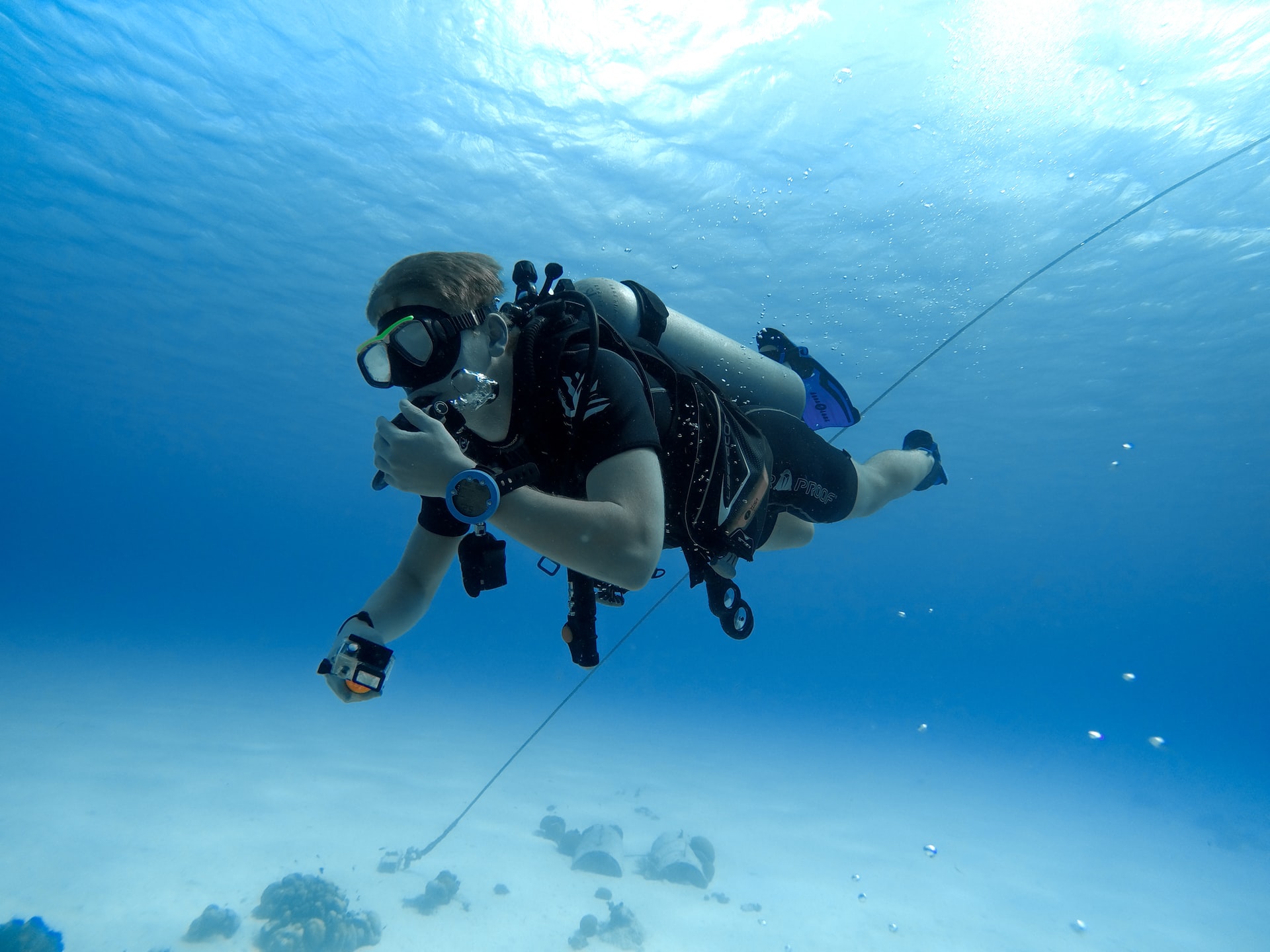
Are Scuba Divers Athletes? All the Facts (+New Competitive Forms)
-
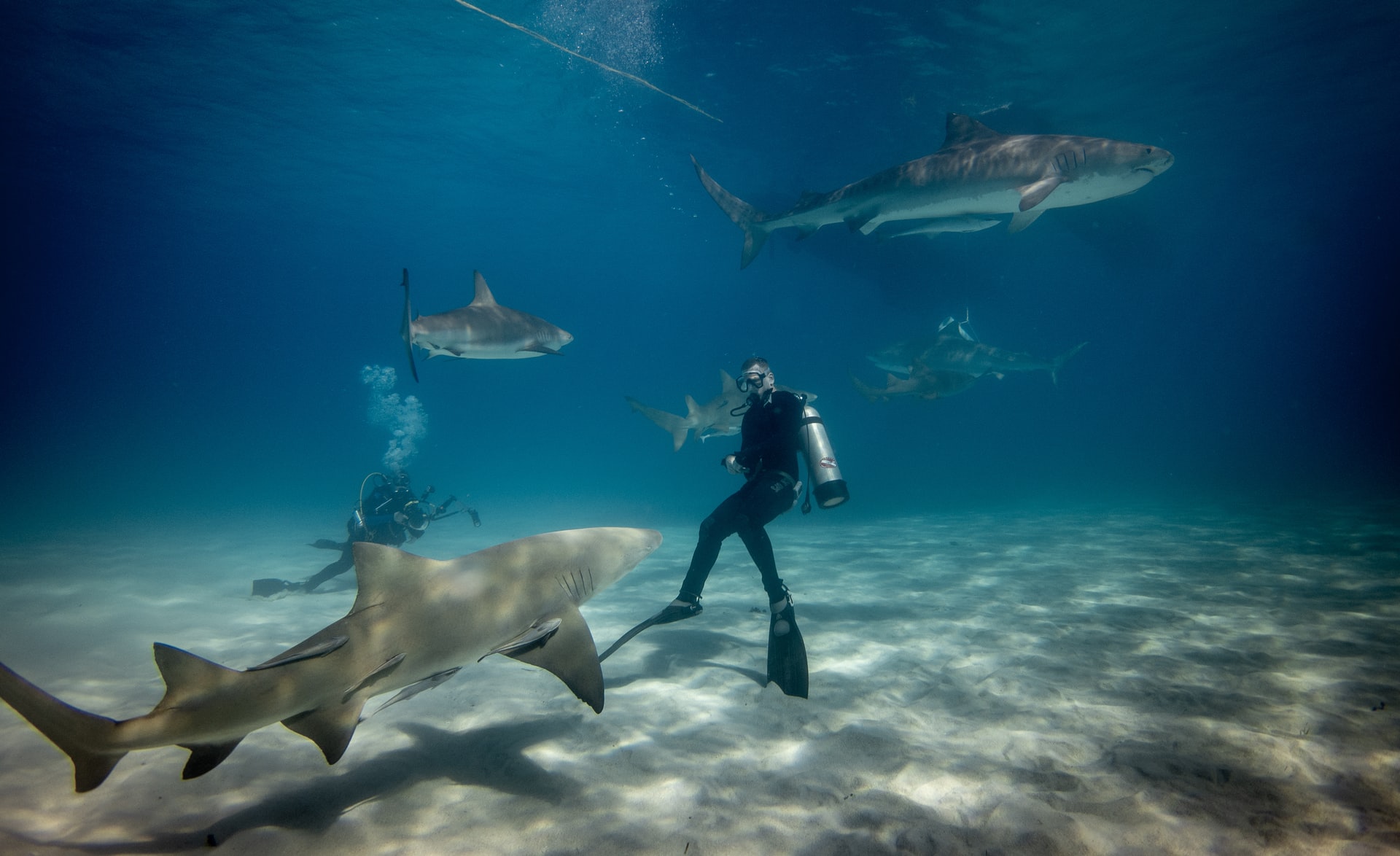
Are Sharks Scared of Scuba Divers? (What Every Diver Must Know)
-
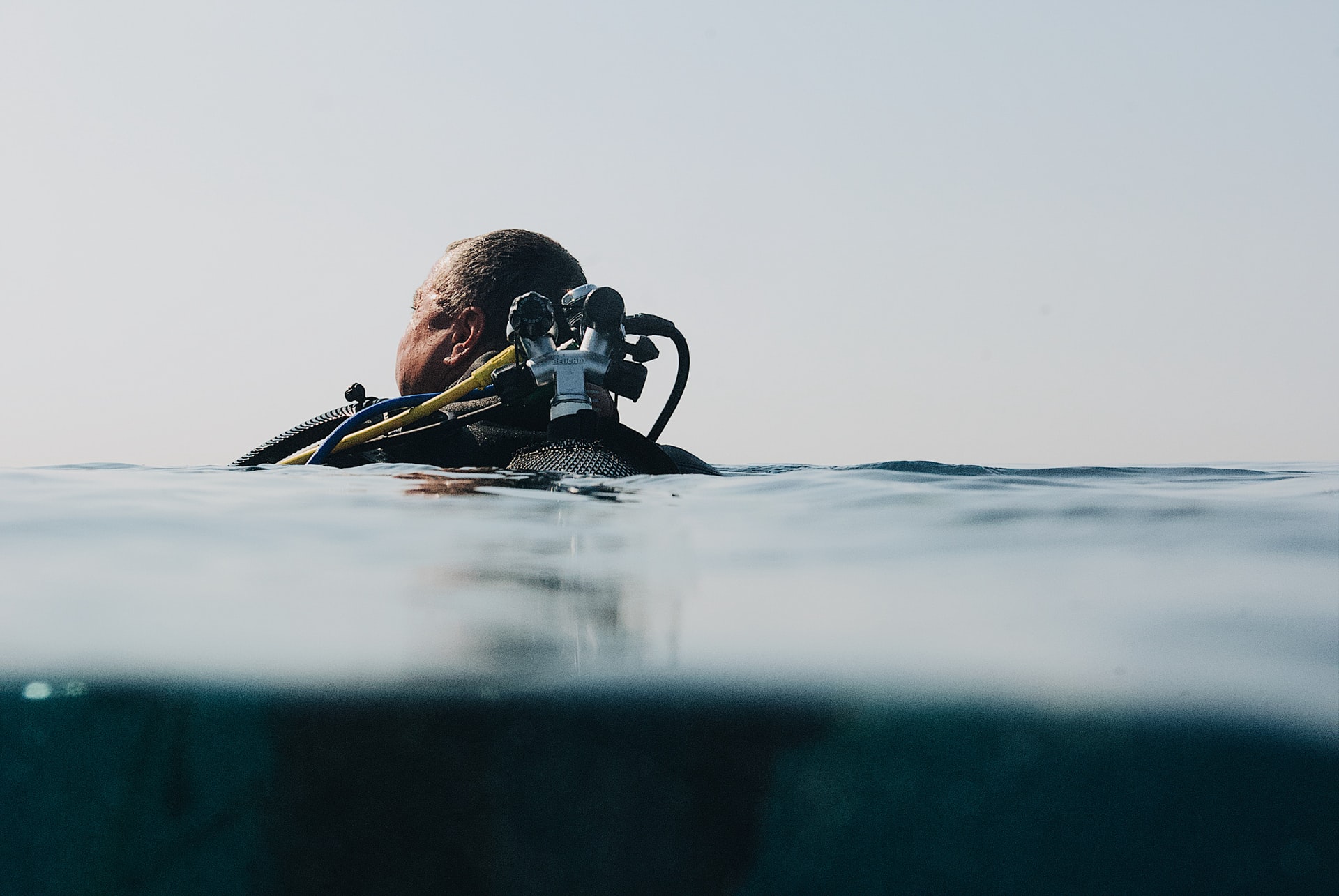
Who Should Not Scuba Dive? 17 Reasons (Every Diver Should Know)
-
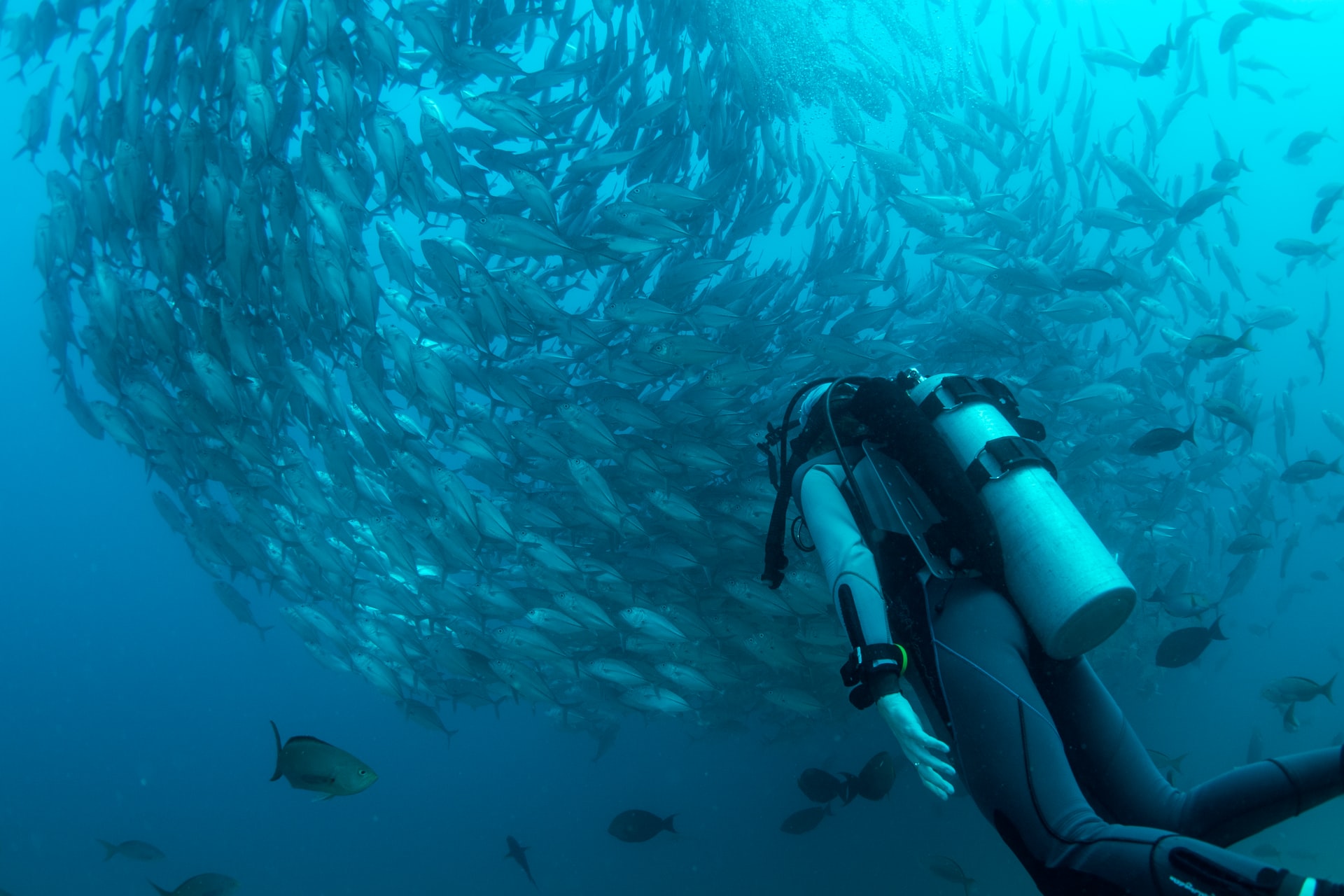
Should I Be Scared of Scuba Diving? 8 Common Fears (Debunked)
-
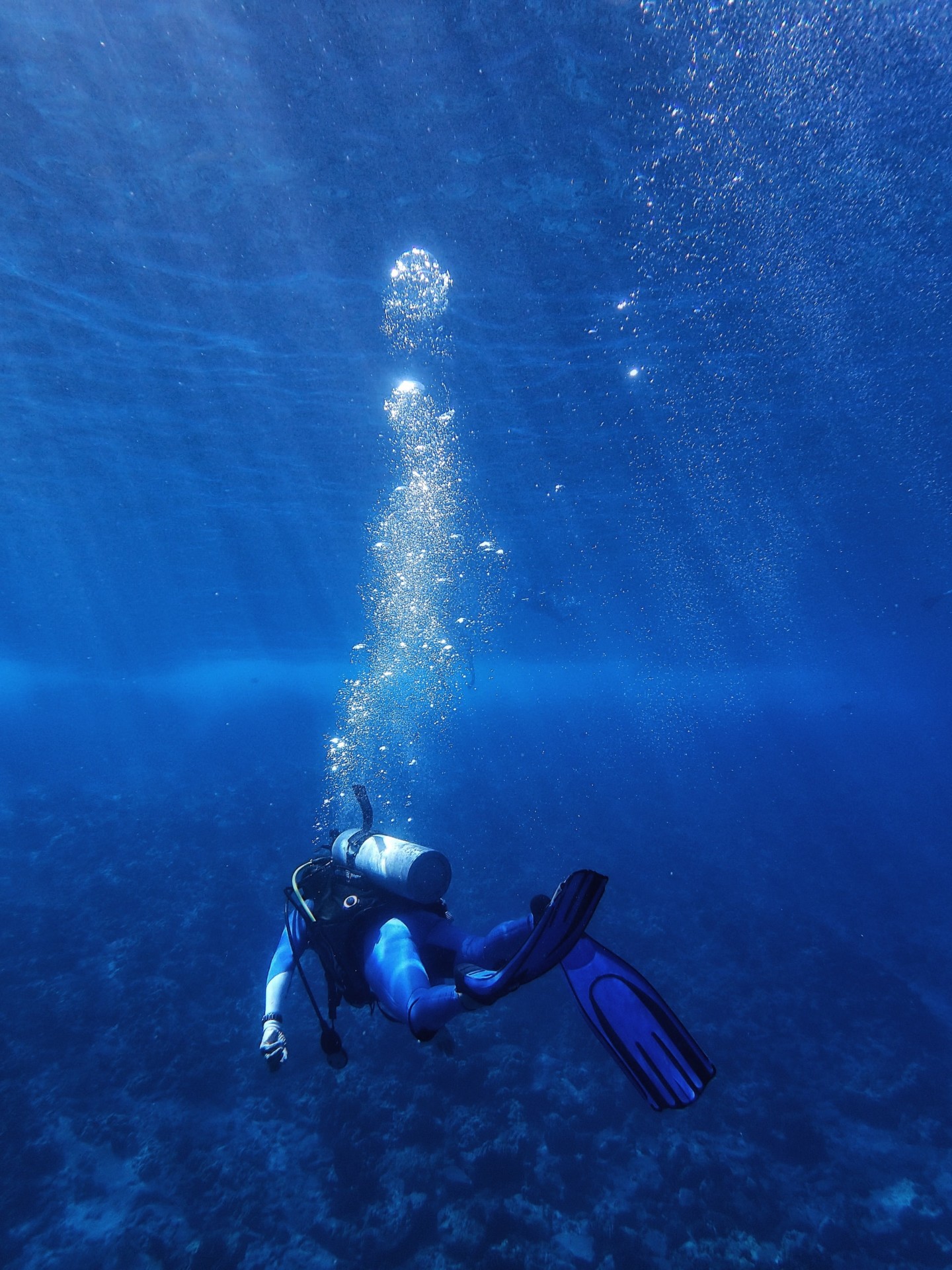
Why Do Scuba Divers Use More Air at Depth? (+4 Practical Tips)
-
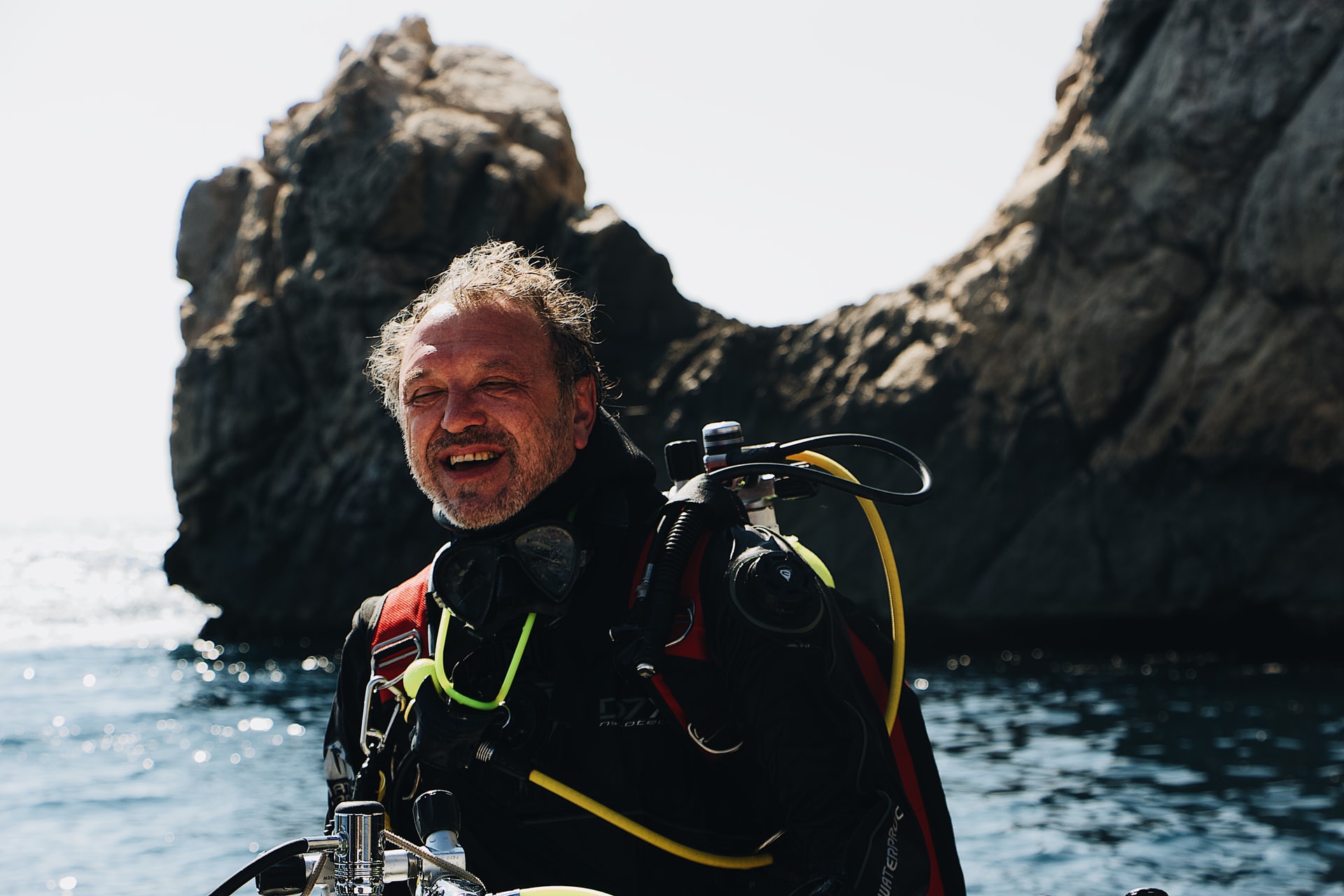
At What Age Should You Stop Scuba Diving? (+9 Tips for Older Divers)
-
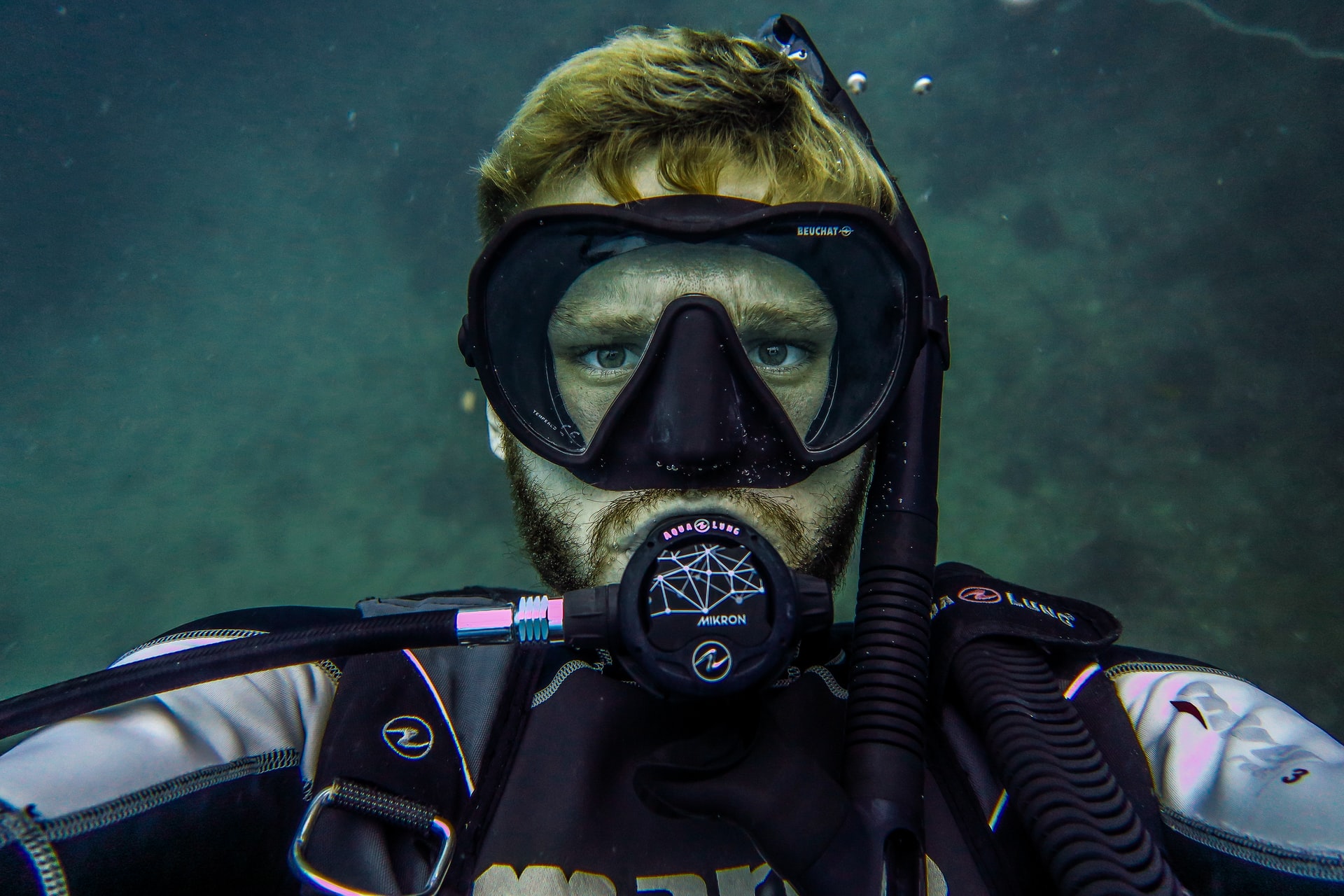
Should I Shave Before Scuba Diving? Crucial Facts (+9 Helpful Tips)
-
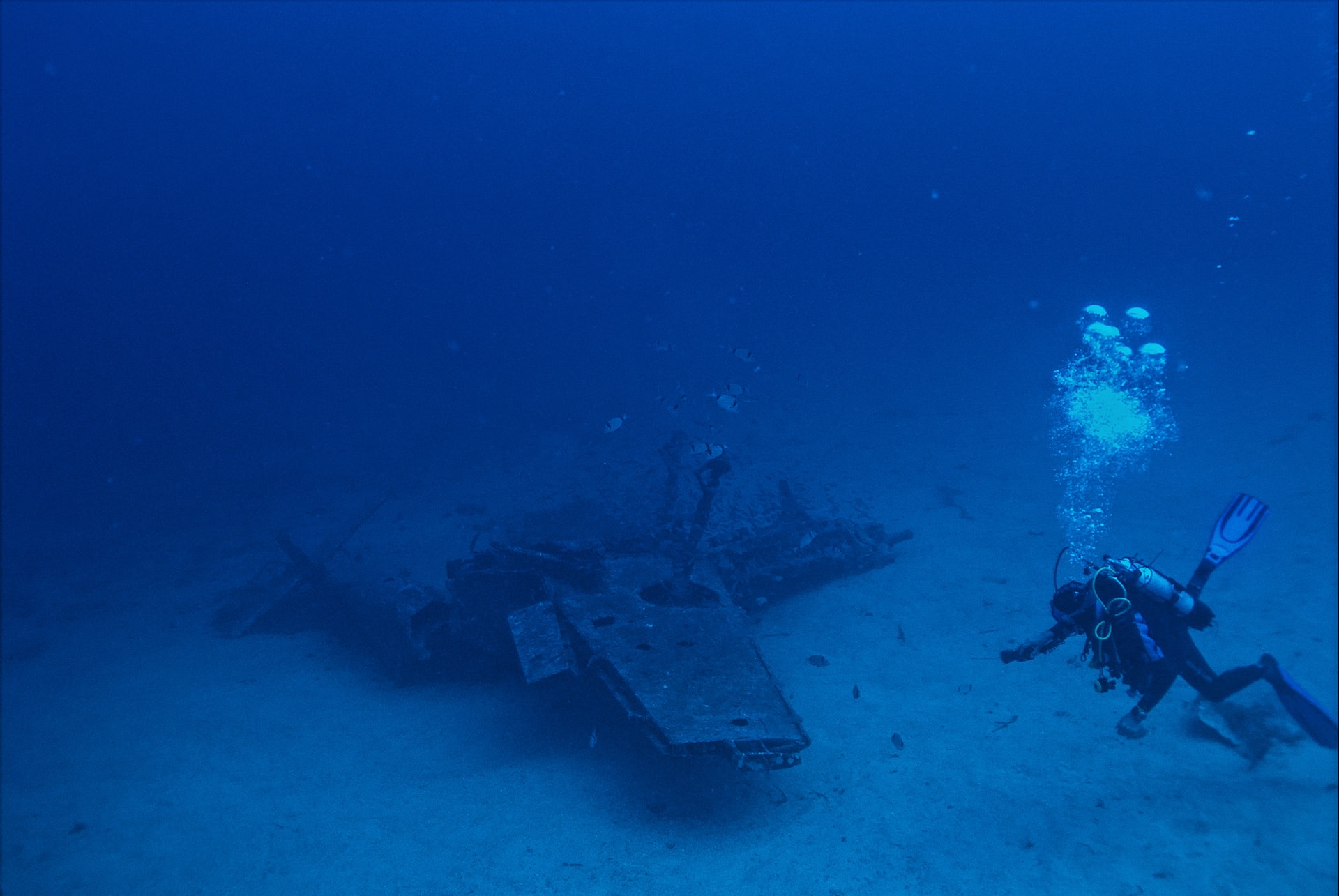
Why Do Scuba Divers Use Helium? (+Its Pros & Cons)
-
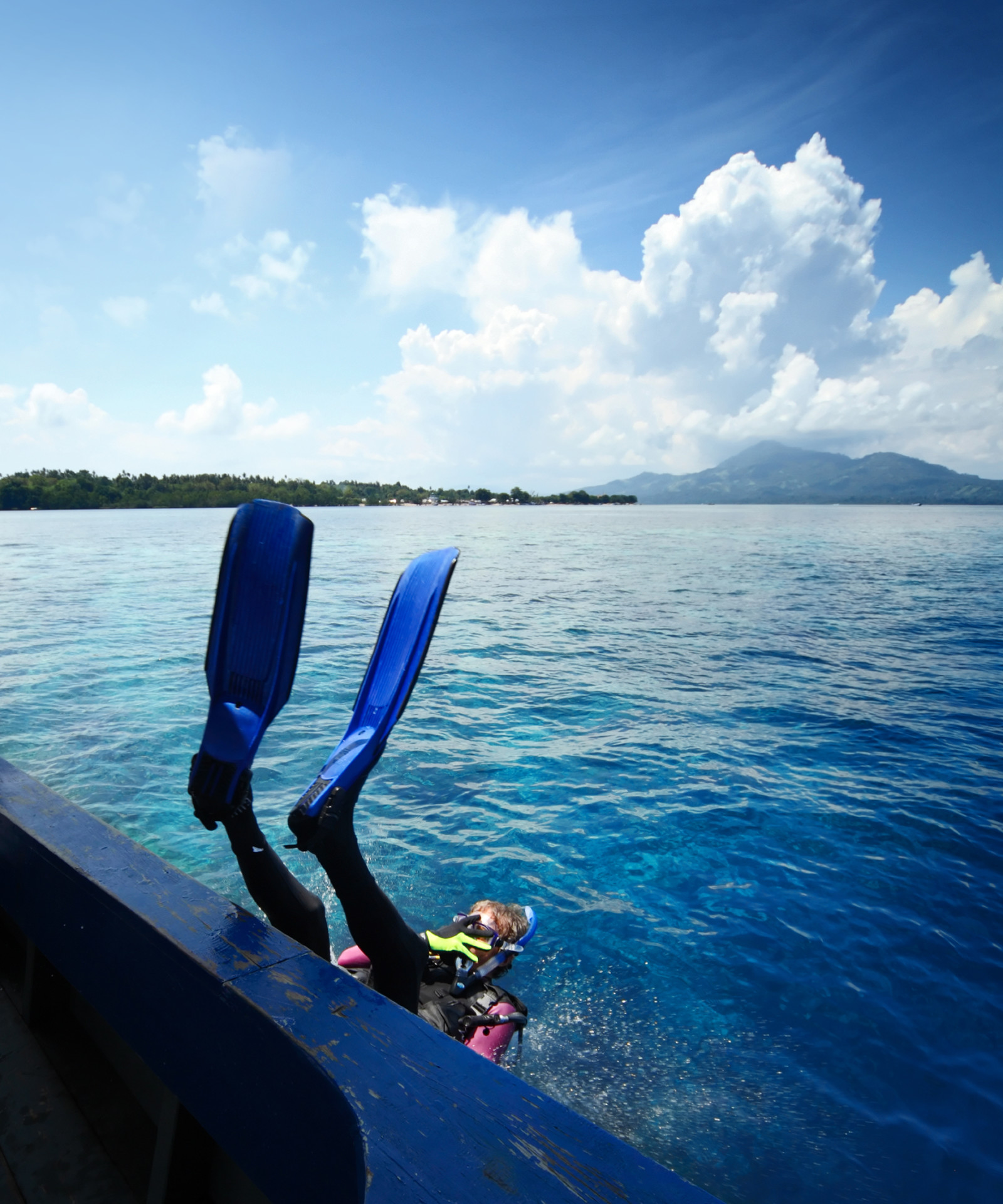
Why Do Scuba Divers Go in Backwards? (+3 Alternative Entries)
-
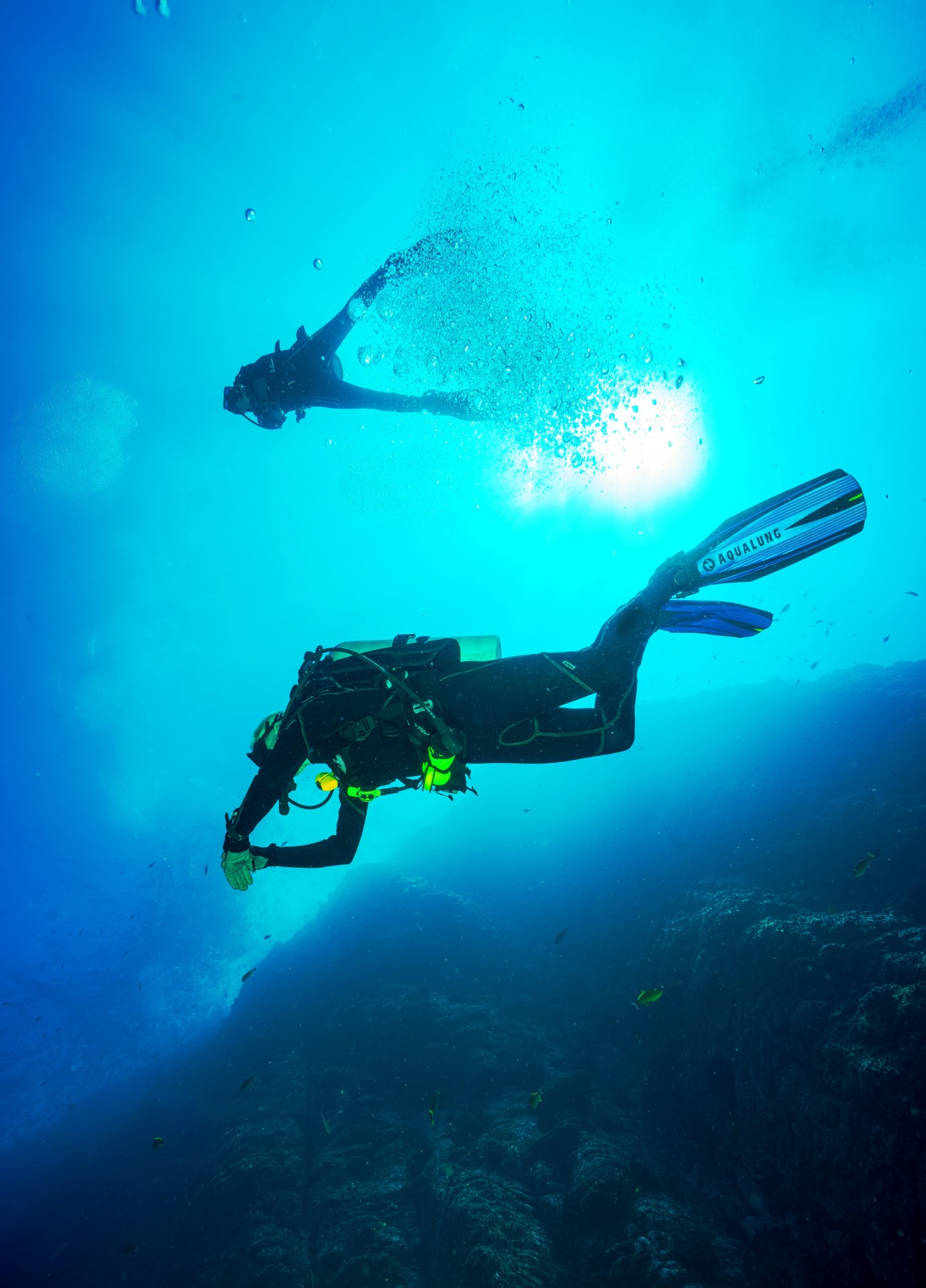
How Do Scuba Divers Sink and Float? (+Tips to Get It Right)








